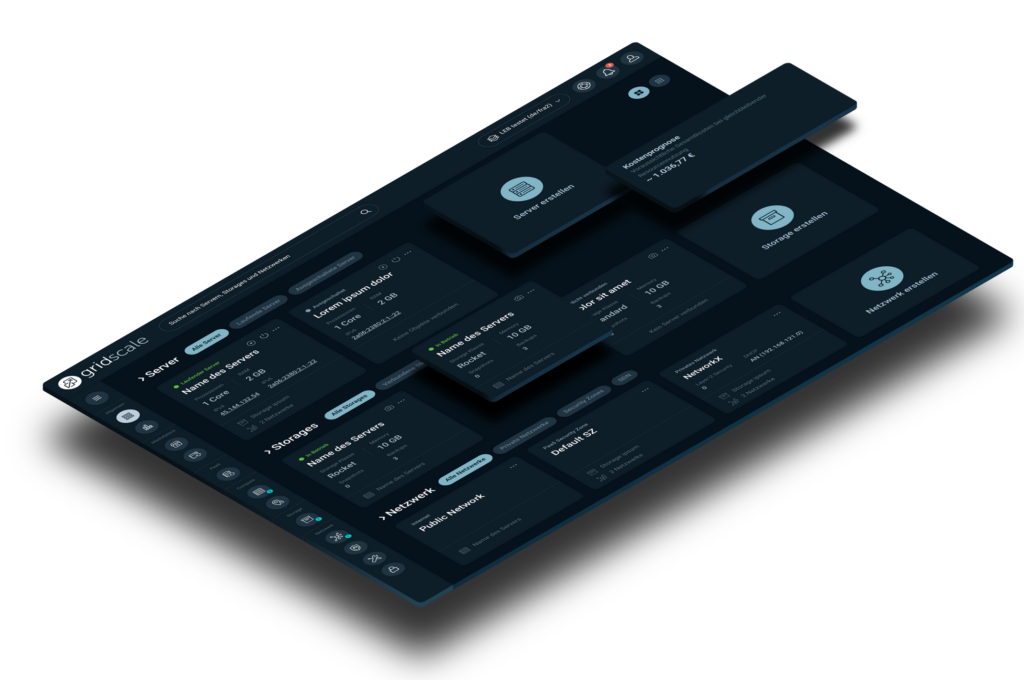Plan. Build. Run!
Your IT future with our HCI solution
Scalable. Cost-efficient. Hyperconvergent.
The Hybrid Core Concierge

The world’s most user-friendly modular platform for building public, private or hybrid clouds.
Cloud technology without compromise
Compute
Effortless provisioning and scalability of VMs for any workload.
PaaS
Kubernetes, databases and more – as fully managed platform services.
GPU
Easy deployment of powerful AMD GPUs for your AI/ML applications, without complicated setup processes.
Data center
Cloud exit without loss of features: our hardware at your desired location. The fair alternative for your data center. ” Concierge
Leading companies rely on gridscale.
Strictest data protection
BSI:C5-certified: With our German headquarters and data center operations, we are subject to the strictest security and data protection requirements in the world.
Pay-as-you-grow
Our transparent cost model provides a precise overview of costs incurred at all times, broken down into accounts and/or customers.
Managed Services
A variety of managed services take over the operation of complex infrastructure. Automated workflows, monitoring and maintenance ensure a stable, high-performance environment.
Intuitive UX
Our panel is designed to get you to your destination as quickly and easily as possible. For geeks & nerds, there is of course also a powerful RESTful API.
Explain a powerful cloud platform in just three minutes? Only we can do that.

Full transparency and maximum data sovereignty when choosing a location: from A for Amsterdam to Z for LuZern.


Latest blog posts
How companies secure their data sovereignty
Cloud made in Europe: How companies secure their data sovereignty “Germany is not digitally sovereign….
The future of enterprise software: AI agents are coming
The future of business software: The AI agents are coming! A new wave of development…
Rethinkinging corporate IT – with a hyperconverged infrastructure
Hyperconverged infrastructure (HCI) Rethinking corporate IT – with a hyperconverged infrastructure Manage an IT infrastructure…
Data sovereignty, innovation, security: why German companies are turning to edge computing
Data sovereignty, innovation, security: Why German companies rely on edge computing What is driving investment…









